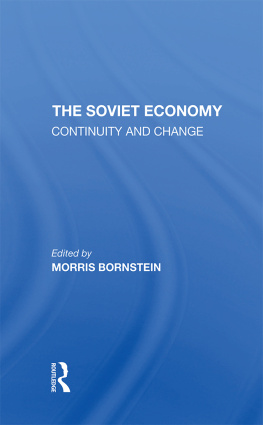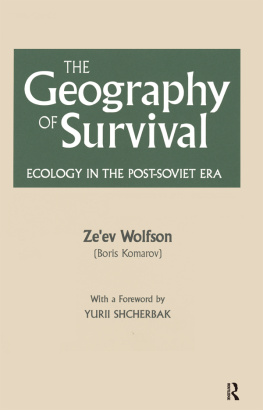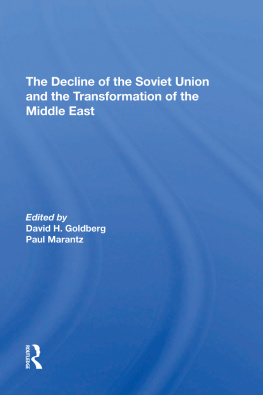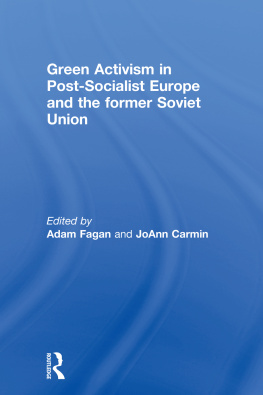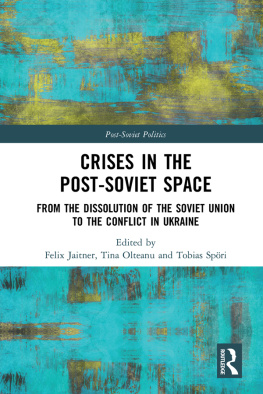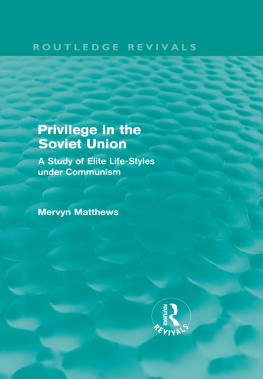During the twentieth century, the Soviet Union turned the Kola Peninsula in the northwest corner of the country into one of the most populated, industrialized, militarized, and polluted parts of the Arctic. This transformation suggests, above all, that environmental relations fundamentally shaped the Soviet experience. Interactions with the natural world both enabled industrial livelihoods and curtailed socialist promises. Nature itself was a participant in the communist project. Taking a long-term comparative perspective, The Nature of Soviet Power sees Soviet environmental history as part of the global pursuit for unending economic growth among modern states. This in-depth exploration of railroad construction, the mining and processing of phosphorus-rich apatite, reindeer herding, nickel and copper smelting, and energy production in the region examines Soviet cultural perceptions of nature, plans for development, lived experiences, and modifications to the physical world. While Soviet power remade nature, nature also remade Soviet power.
Andy Bruno is Assistant Professor in the Department of History and Faculty Associate in Environmental Studies at Northern Illinois University.
Other Books in the Series
Erik Loomis , Empire of Timber: Labor Unions and the Pacific Northwest Forests
David A. Bello , Across Forest, Steppe, and Mountain: Environment, Identity, and Empire in Qing China's Borderlands
Peter Thorsheim , Waste into Weapons: Recycling in Britain during the Second World War
Kieko Matteson , Forests in Revolutionary France: Conservation, Community, and Conflict, 16691848
George Colpitts , Pemmican Empire: Food, Trade, and the Last Bison Hunts in the North American Plains, 17801882
Micah Muscolino , The Ecology of War in China: Henan Province, the Yellow River, and Beyond, 19381950
John Brooke , Climate Change and the Course of Global History: A Rough Journey
Emmanuel Kreike , Environmental Infrastructure in African History: Examining the Myth of Natural Resource Management
Paul Josephson , Nicolai Dronin , Ruben Mnatsakanian , Aleh Cherp , Dmitry Efremenko , Vladislav Larin , An Environental History of Russia
Gregory T. Cushman , Guano and the Opening of the Pacific World: A Global Ecological History
Sam White , Climate of Rebellion in the Early Modern Ottoman Empire
Alan Mikhail , Nature and Empire in Ottoman Egypt: An Environmental History
Edmund Russell , Evolutionary History: Uniting History and Biology to Understand Life on Earth
Richard W. Judd , The Untilled Garden: Natural History and the Spirit of Conservation in America, 17401840
James L. A. Webb , Jr. , Humanity's Burden: A Global History of Malaria
Frank Uekoetter , The Green and the Brown: A History of Conservation in Nazi Germany
Myrna I. Santiago , The Ecology of Oil: Environment, Labor, and the Mexican Revolution, 19001938
Matthew D. Evenden , Fish versus Power: An Environmental History of the Fraser River
Nancy J. Jacobs , Environment, Power, and Injustice: A South African History
Adam Rome , The Bulldozer in the Countryside: Suburban Sprawl and the Rise of American Environmentalism
Judith Shapiro , Mao's War Against Nature: Politics and the Environment in Revolutionary China
Edmund Russell , War and Nature: Fighting Humans and Insects with Chemicals from World War I to Silent Spring
Andrew Isenberg , The Destruction of the Bison: An Environmental History
Thomas Dunlap , Nature and the English Diaspora
Robert B. Marks , Tigers, Rice, Silk, and Silt: Environment and Economy in Late Imperial South China
Mark Elvin and Tsui'jung Liu , Sediments of Time: Environment and Society in Chinese History
Richard H. Grove , Green Imperialism: Colonial Expansion, Tropical Island Edens and the Origins of Environmentalism, 16001860
Elinor G.K. Melville , A Plague of Sheep: Environmental Consequences of the Conquest of Mexico
J. R. McNeill , The Mountains of the Mediterranean World: An Environmental History
Theodore Steinberg , Nature Incorporated: Industrialization and the Waters of New England
Timothy Silver , A New Face on the Countryside: Indians, Colonists, and Slaves in the South Atlantic Forests, 15001800
Michael Williams , Americans and Their Forests: A Historical Geography
Donald Worster , The Ends of the Earth: Perspectives on Modern Environmental History
Samuel P. Hays , Beauty, Health, and Permanence: Environmental Politics in the United States, 19551985
Warren Dean , Brazil and the Struggle for Rubber: A Study in Environmental History
Robert Harms , Games Against Nature: An Eco-Cultural History of the Nunu of Equatorial Africa
Arthur F. McEvoy , The Fisherman's Problem: Ecology and Law in the California Fisheries, 18501980
Alfred W. Crosby , Ecological Imperialism: The Biological Expansion of Europe, 9001900, Second Edition
Kenneth F. Kiple , The Caribbean Slave: A Biological History
Donald Worster , Nature's Economy: A History of Ecological Ideas, Second Edition
32 Avenue of the Americas, New York, ny 10013-2473, usa
Cambridge University Press is part of the University of Cambridge.
It furthers the University's mission by disseminating knowledge in the pursuit of education, learning, and research at the highest international levels of excellence.
www.cambridge.org
Information on this title: www.cambridge.org/9781107144712
Andy Bruno 2016
This publication is in copyright. Subject to statutory exception and to the provisions of relevant collective licensing agreements, no reproduction of any part may take place without the written permission of Cambridge University Press.
First published 2016
Printed in the United Kingdom by Clays, St Ives plc
A catalog record for this publication is available from the British Library.
isbn 978-1-107-14471-2 Hardback
Cambridge University Press has no responsibility for the persistence or accuracy of url s for external or third-party Internet Web sites referred to in this publication and does not guarantee that any content on such Web sites is, or will remain, accurate or appropriate.
Contents
Figures
Maps
Tables
Acknowledgments
In one way or another, this book has been with me for over a third of my life. As one would expect from such a long-term project, I have accrued countless debts while working on it. Far too many people have assisted me in the process to mention them all. So let me start by offering a huge thank you to everyone who has helped in even the smallest of ways. This book would not be what it is without you.
I began concocting the idea of an in-depth environmental history of a region in the Russian Arctic as an undergraduate at Reed College, even before I knew that the field of environmental history existed. My wonderful professors there did a tremendous amount to start me off on a serious scholarly path. While studying as an MA student at the European University at Saint Petersburg with support from the Fulbright U.S. Student Program, Julia Lajus, Alla Bolotova, Aleksei Kraikovskii, and Daniil Aleksandrov introduced me to many of the classics of environmental history scholarship and taught me about the fascinating history of the Kola Peninsula. Over the years they have gone from being supportive mentors to treasured colleagues.


